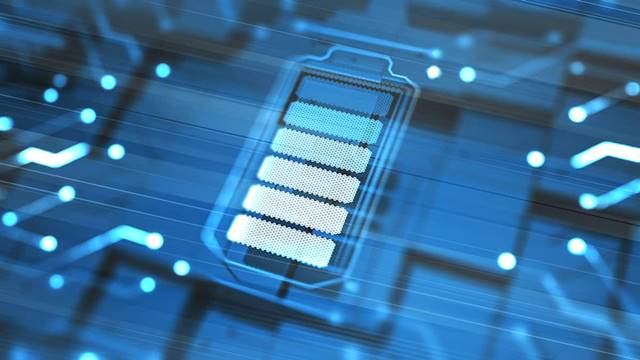The automotive industry is transforming significantly as the world moves towards a greener and more sustainable future. The shift to electric vehicles (EVs) is crucial in reducing carbon emissions and combating climate change. At the heart of this transition lies the remarkable advancements in lithium battery technology, which have revolutionized the EV market.
These advanced energy storage devices offer several advantages over traditional lead-acid batteries, making them the preferred choice for EV manufacturers. Their lightweight nature, high energy density, longer battery life, and faster charging capabilities contribute to adopting EVs powered by lithium batteries. In this article, we will explore the vital role that lithium batteries play in the transition to electric vehicles, highlighting their benefits, different technologies, environmental impact, challenges, and future developments.
Benefits of Lithium Batteries for Electric Vehicles
Lightweight and High Energy Density
Lithium batteries are known for their lightweight construction, making them ideal for electric vehicles. By reducing the weight of the battery pack, the vehicle’s overall weight decreased, leading to improved energy efficiency and extended driving range. Lithium batteries have a high energy density, meaning they can store a significant amount of energy in a compact size, enabling EVs to travel longer distances on a single charge.
Longer Battery Life and Enhanced Performance
One of the critical advantages of lithium batteries is their extended lifespan compared to other battery technologies. GOLDENMATE Lithium batteries can last several years with proper maintenance and usage, offering reliable and consistent performance throughout their lifecycle. Moreover, lithium batteries provide consistent power delivery, ensuring smooth acceleration and enhanced versions of electric vehicles.
Faster Charging Capabilities
Lithium batteries enable faster charging times, addressing one of the major concerns associated with electric vehicles. With advancements in charging infrastructure and fast-charging stations, EV owners can recharge their cars in minutes instead of hours. This rapid charging capability enhances the convenience and usability of electric vehicles, making them more appealing to a broader audience.
Lithium Battery Technologies for Electric Vehicles
Lithium batteries for electric vehicles come in various forms, each with unique characteristics and applications. The most common types include:
Lithium-Ion Batteries
Lithium-ion batteries are widely used in electric vehicles due to their high energy density, compact size, and excellent performance. They utilize lithium ions moving between the positive and negative electrodes during charging and discharging, enabling efficient energy storage.
Lithium Iron Phosphate Batteries
Lithium iron phosphate (LiFePO4) batteries offer enhanced safety features and longer lifespan compared to other lithium battery chemistries. They are less prone to thermal runaway and have a higher tolerance for extreme temperatures, making them a reliable choice for EV applications.
Lithium Polymer Batteries
Lithium polymer batteries use a gel-like electrolyte instead of a liquid electrolyte, offering flexibility in shape and size. They can be molded into different forms, allowing for innovative design possibilities in electric vehicles.
Environmental Impact of Lithium Batteries
As the adoption of electric vehicles increases, it is essential to consider the environmental impact of the battery technologies powering these vehicles. Lithium batteries present several environmental advantages over traditional combustion engines, including:
Recycling and Second Life Applications
Lithium batteries are recyclable, and their components can be repurposed for second-life applications. Recycling valuable materials like lithium, cobalt, and nickel reduces the demand for new resources. Additionally, retired EV batteries can find new Certainly! I apologize for the interruption.
Here’s the continuation of the article –
Reduced Emissions and Carbon Footprint
Electric vehicles powered by lithium batteries produce zero tailpipe emissions, significantly reducing greenhouse gas emissions and air pollution. By transitioning from internal combustion engines to EVs, we can make substantial progress in reducing our carbon footprint and mitigating the adverse effects of climate change.
Challenges and Future Developments
While lithium batteries have revolutionized the electric vehicle industry, there are still challenges to address and future developments to explore:
Limited Availability of Lithium Resources
The global demand for lithium resources has increased with the rise in electric vehicle production. Ensuring a sustainable supply of lithium is essential to support the growing market. Researchers and industry experts are actively exploring alternative sources of lithium and developing recycling techniques to minimize resource depletion.
Advancements in Battery Technology
The field of battery technology continues to evolve rapidly, driven by the need for improved energy storage solutions. Researchers are exploring new materials, such as solid-state electrolytes, and novel battery architectures to enhance lithium batteries’ performance, energy density, and safety. These advancements will further propel the adoption of electric vehicles.
Conclusion
Lithium batteries have been pivotal in transitioning to electric vehicles, enabling a cleaner, greener, and more sustainable transportation system. With their lightweight nature, high energy density, longer battery life, and faster charging capabilities, lithium batteries have become the preferred choice for EV manufacturers worldwide. Additionally, their reduced environmental impact and potential for recycling contribute to a more circular economy. As we address challenges like resource availability and continue to innovate in battery technology, the role of lithium batteries in the electrification of transportation will only become more significant.

